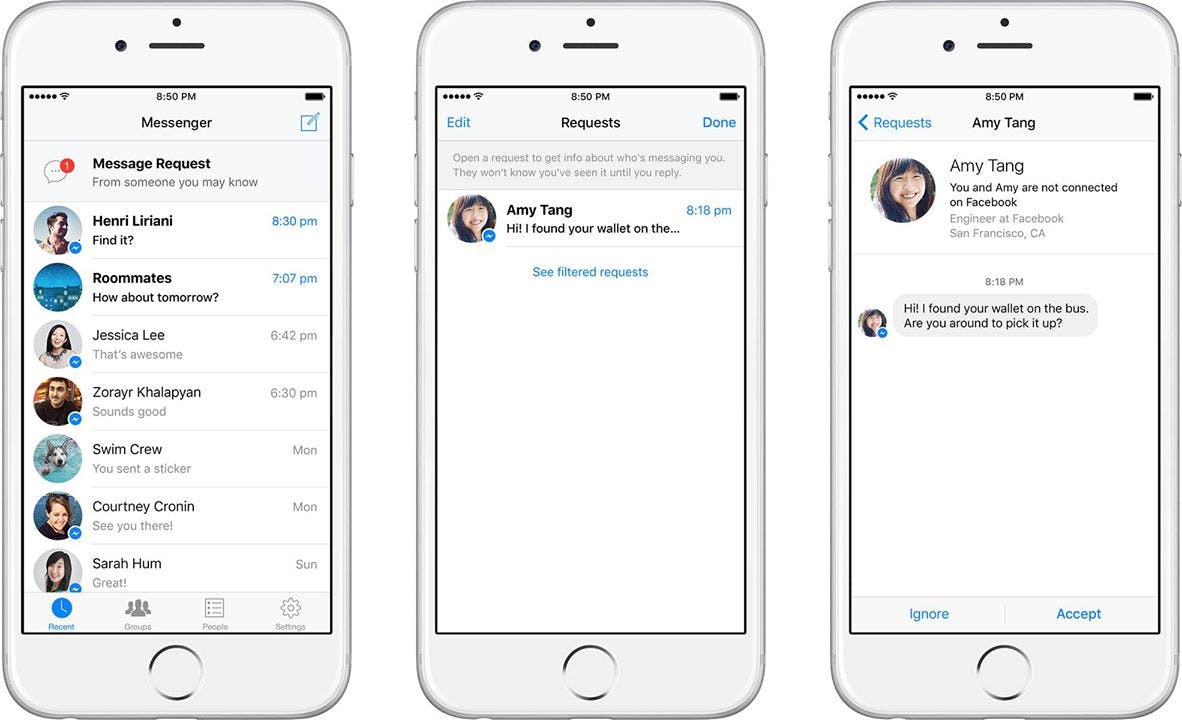Facebook is on an update binge.
Right after beefing up its mobile app notifications with even more personalized information that will surely lengthen your social media hypnosis, the website that hopes to be your one-stop shop on the Internet is tweaking yet another feature, this time focusing on one we totally forgot about.
Facebook’s Other inbox, otherwise known as the place where messages from people outside your network come to die horrible deaths, will be phased out as part of an initiative to make Messenger—Facebook’s official chat platform—the only place you get notifications for private messages, whether they come from your contacts or not. If it’s the latter—and depending on how you have the “Who can contact me” option set up—communication from users who fall outside your Facebook friends will come into your inbox in the form of “Message Requests.”
Here’s how Message Requests work, according a post by David Marcus, Facebook’s head of messaging:
The rule is pretty simple: If you’re friends on Facebook, if you have each other’s contact info in your phone and have these synced, or if you have an existing open thread, the new messages from that sender will be routed to your inbox. Everything else will now be a message request, minus spam attempts that we will continue to ruthlessly combat.
Messenger wants to be your final alternative for SMS, and it might as well be. If all the people you text are on Facebook anyway, there’s no need for you to memorize their digits—just searching their name will be enough.
If someone not in your friends list decides to contact you, a request will pop up on top of Messenger’s inbox queue on both the mobile version of the Facebook service as well as in the desktop platform’s Messages tab. Upon clicking on a request thread, you’ll see the person’s name, their city, job title, your mutual friends (if any), and of course, their message.
Conveniently, a read receipt will not be attached to the thread even if you peeked, giving you the option to either respond or ignore someone. Ignored messages get booted into a hidden Filtered Requests folder, while acknowledged messages are kept in the inbox as normal threads. Additionally, you can also block users from contacting you any further—deleting or ignoring message requests will bar their future notifications from showing up in your Messenger feed.
This update is great for users who like using Facebook both in their personal and professional capacities because it allows them to converse (or not) with non-friends without needing to add them on the social media site. You no longer need to add folks you just met, but you can contact them any time should there be a need.
H/T TechCrunch | Illustration by Max Fleishman



